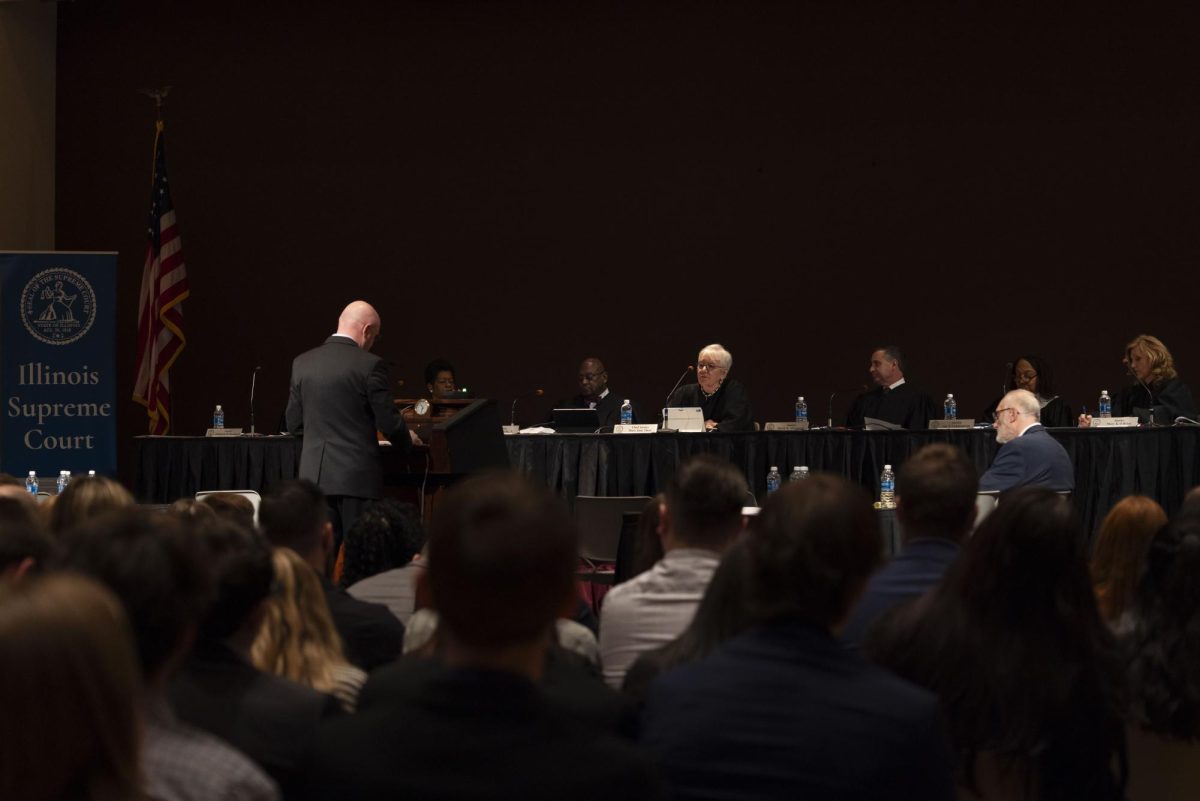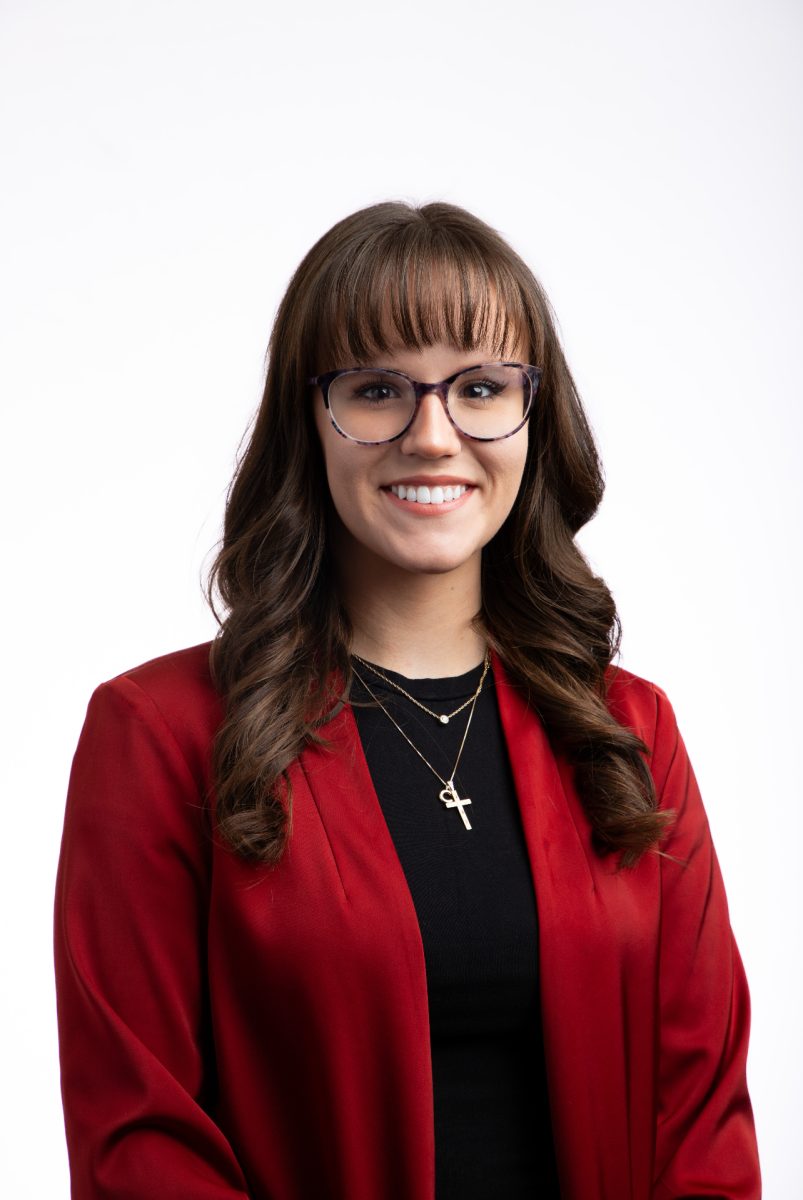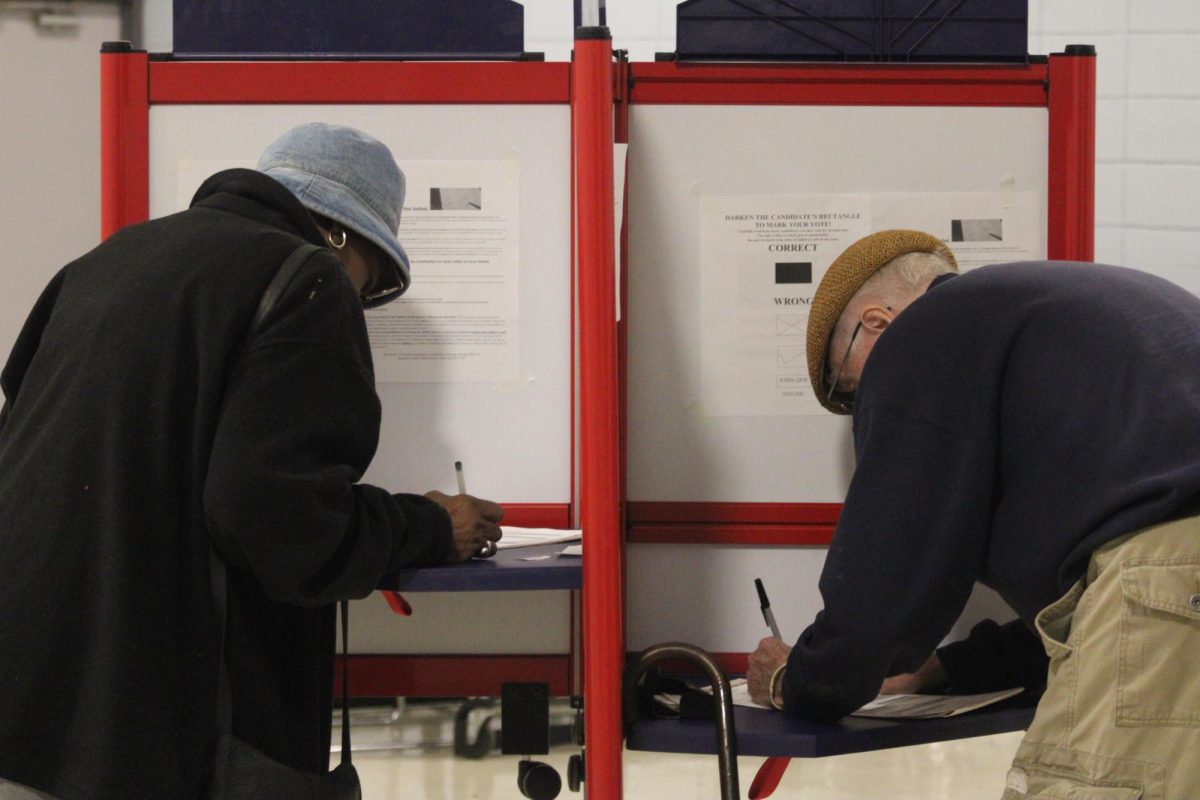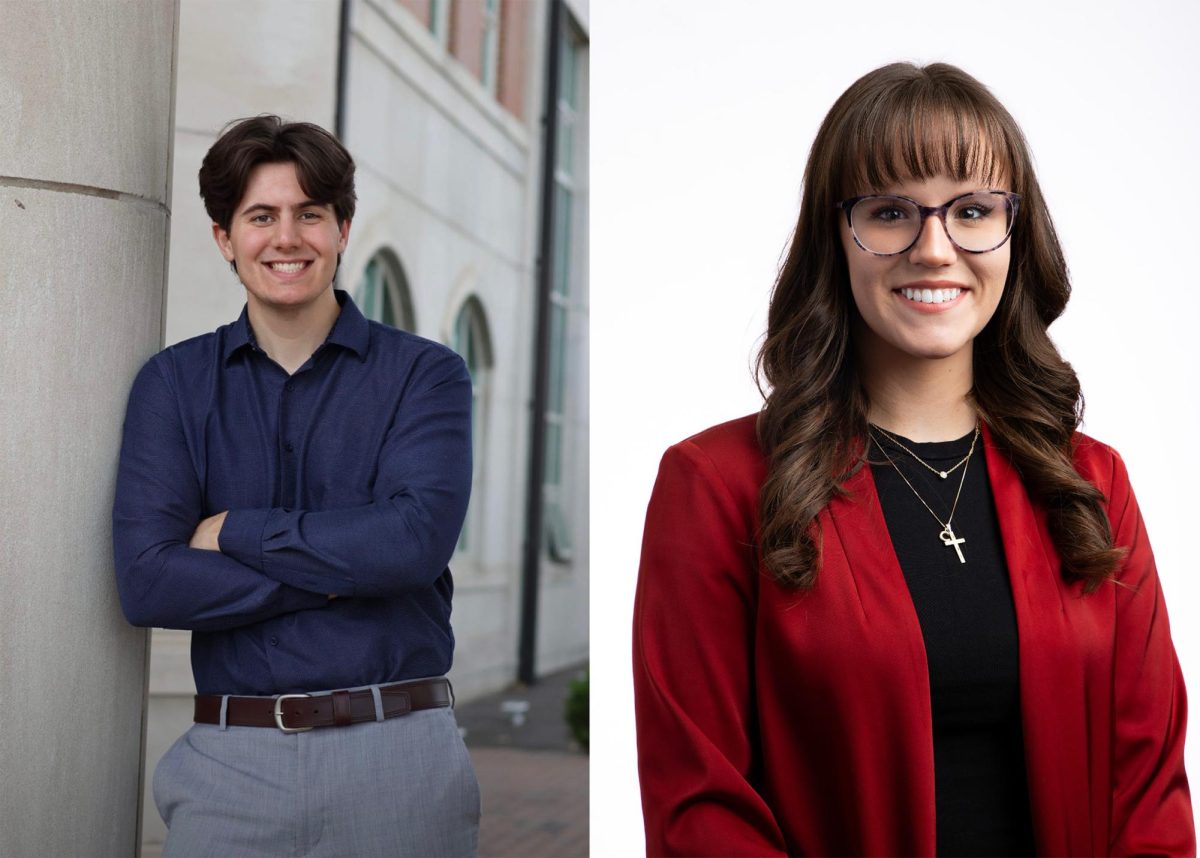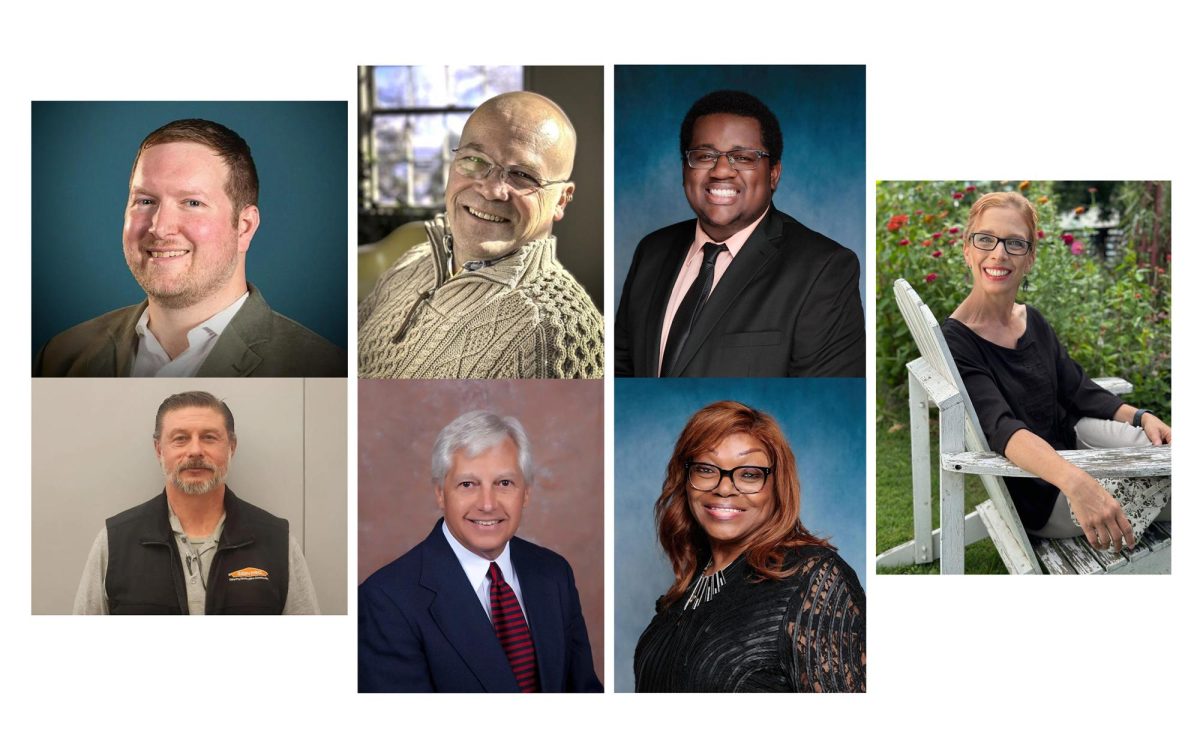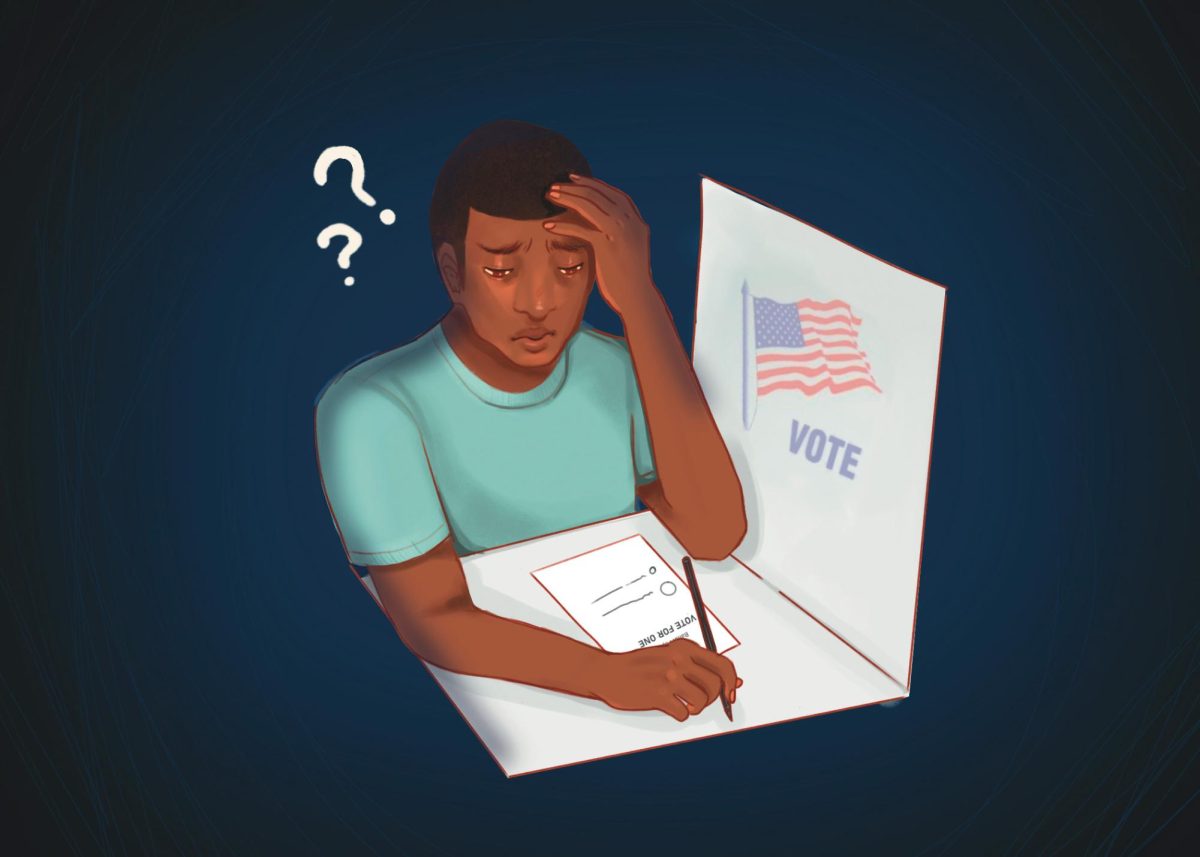The ballroom of SIU’s student center became the setting of the Illinois Supreme Court on Tuesday morning, March 18. After over a year of preparation, Simmons Law School hosted the Supreme Court of Illinois’ March Term 2025 Oral Arguments on the Carbondale campus, where topics such as sentencing, drug possession and child custody were discussed.
Close to 850 people attended the day’s event, according to Angela Upchurch, acting dean of Simmons Law School. Among those in attendance were SIU undergraduates of various disciplines, local high school and middle school students, SIU System Members and Simmons Law School students. Rows of chairs filled the ballroom as attendees gathered and waited for the judges to take their seats on stage.
Advertisement
“We had an enormous response from the community, both from schools but also just members of the Carbondale community,” Upchurch said. “So like members of the public, undergrad students and our law students, so we were really excited.”
According to a booklet provided to all attendees, the Court, which is based in Illinois’ capitol of Springfield, has held oral arguments throughout the state in recent years “to raise awareness of the judicial branch and of the important role the court system has in interpreting state laws,” a tradition the Court calls “riding the circuit.” Since 2008, the Illinois Supreme Court has met in Mt. Vernon, Ottawa, Lisle, Champaign, Godfrey, Chicago and DeKalb. Carbondale’s turnout, however, is the largest the Court has seen in an off-site, in-person setting, Upchurch said.
“Simmons Law School was founded in the public interest for the public good — it’s our unofficial motto,” she said. “We believe that our job is not only to train attorneys — which it very much is — but also to reach out to the community and be a conduit for them to understand government, to understand the judiciary, to understand their role as citizens. This was an opportunity for us to provide the middle schoolers and high schoolers that attended a chance to see government in action. The Supreme Court has never been here before, so it’s historic for them to come here. They do sometimes convene outside of Springfield, but it’s the first time that they’ve came to Carbondale.”

Two Illinois cases were discussed on Monday: Case No. 130344, People v. Hoffman and Case No. 130931, Hulsh v. Hulsh.
Advertisement*
In the case of People v. Hoffman, the defendant, Krystle Hoffman, was convicted of drug-induced homicide. In 2017, she delivered around $60 worth of heroin to Lorna Haseltine, in what Hoffman explained as a plan to help her boyfriend with his heroin addiction. Haseltine paid for the heroin, and took the drugs, which turned out to be laced with fentanyl, while getting ready for a party at her parents’ house. Haseltine was found unresponsive and later pronounced dead.
Hoffman pleaded guilty to drug-induced homicide, which typically has a minimum prison term of six years. Hoffman asked for a lesser sentence under 730 ILCS 5/5-4-1(c-1.5), a statute subsection that allows a court to impose a lesser sentence if “the offense involves the use or possession of drugs.” The trial court found the statute was inapplicable in a case of drug-induced homicide, but the appellate court vacated Hoffman’s sentence and ordered the trial court to consider whether to impose a sentence below the mandatory minimum. The state is appealing the appellate court’s ruling to the Illinois Supreme Court.
In Hulsh v. Hulsh, Jeremy Hulsh abducted his two children who were living with their mother, Viera Hulsh – the plaintiff – in Slovakia. After divorcing in 2019, Viera was granted primary custody, while Jeremy was granted visitation rights. In October 2019, Jeremy brought the children to the Chicago area. A federal court ordered Jeremy to return the children to Viera, and Viera was awarded attorney fees and costs she incurred to get the children back. However, fees that the court found to be “duplicative or unreasonable” or “unsupported by documentation or unrecoverable under the statute,” were excluded. Viera then sued Jeremy’s mother and brother in a state court, alleging that they assisted him with costs for a charter plane and housing, while not informing her of her children’s whereabouts. A trial court and appeals court dismissed the lawsuit. Viera is appealing the decisions to the Illinois Supreme Court.
For the hundreds of law students who filled a majority of the room, viewing the oral hearings on campus was an opportunity to see the process with their own eyes. To first year law students Nina Severin and Olivia Miller, who are preparing to give their semester oral arguments, the opportunity was relevant to their current workload.
“It showed us how a federal proceeding works as well as a state proceeding,” Severin said. “Somewhat because it is the Supreme Court, even though it was Illinois, it gives you a general idea of how it works and everyday practice.”
This opportunity gives law students a chance to see and learn litigation skills in real time. To Severin, learning how to speak, address the judges and present a case with a large audience was the most beneficial to her as a student, she said.
“It’s also kind of cool to bring questions to the Supreme Court so they could interpret it differently, create new laws,” Severin said. “I think the legal system evolving is super important.”
Law students were not the only ones in the crowd learning the process, but several young junior high and high school students sat in the audience and asked several questions following the event’s end.
“It was nice to see younger students here like high school students and junior high students,” Miller said. “I grew up in rural Missouri and we never really had this type of opportunity. So to see the Illinois Supreme Court come to a rural area is kind of nice.”
Upchurch held a similar sentiment. “I hope that they (attendees) understand that professions like law are not out of their reach. One of the things that Simmons Law School really works on is remedying what the Illinois Supreme Court has recognized as ‘legal deserts.’ Those are areas in the state where there’s very few practicing attorneys to serve the population. By inviting students that come from our region, one of the things we hope is that they leave saying, ‘I can possibly be an attorney or judge.’”
In addition to having the opportunity to witness law in practice, Upchurch said she wants the students to recognize that the Court is meant to benefit them.
“I also hope they walk away with the understanding that this state and its institutions like the Supreme Court are really for them,” she said. “That it’s in their interest to know about what’s going on, to be informed when they vote, to be really an active member of the state of Illinois.”
Before the Illinois Supreme Court adjourned, Chief Justice Mary Jane Thesis addressed the students in the crowd.
“We talked about big ideas, but hopefully you also saw that those big ideas affect real people’s lives,” Thesis said. “Krystle Hoffman, the Hulsh family, what’s important to them happened here today. You’ve had an opportunity today to participate in one of the most central, keystone parts of who we are as democracy. That’s the rule of law. The rule of law will apply to these folks that I mentioned, to all of us, and really in an interesting way, to the future. To the future of what issues are coming in. So hopefully you enjoyed your time here. I know we have.”
Thesis said the court’s next step is to retire to the conference room, discuss the cases, begin to come to a decision and eventually write an opinion, which she said can be expected within a month or two.
News editor Carly Gist can be reached at cgist@dailyegyptian.com. Editor-in-chief Lylee Gibbs can be reached at lgibbs@dailyegyptian.com. To stay up to date on all your southern Illinois news, be sure to follow The Daily Egyptian on Facebook and on X @dailyegyptian.
Advertisement



